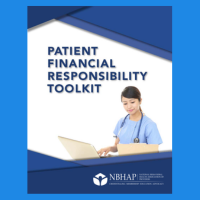Advocacy Alert: Letter to Endorse Due Process Continuity of Care Act
June 8, 2023
via Overdose Prevention Initiative
The National Behavioral Health Association of Providers has signed on to a letter to support the Due Process Continuity of Care Act. This critical legislation would allow pre-trial incarcerated individuals to receive medical services supported by Medicaid.
Currently, the “Medicaid inmate exclusion policy” (MIEP) prohibits the use of federal funds and services for medical care for “inmates of a public institution.” This policy prevents Medicaid-eligible incarcerated individuals, regardless of whether they have been convicted, from receiving services funded by Medicaid. This means that incarcerated individuals awaiting trial in a jail cannot receive most Medicaid services. The policy also prevents incarcerated veterans from receiving hospital and outpatient care in local jails from the Department of Veterans Affairs.
The MIEP was established in Sec. 1905(a)(A) of the Social Security Act, decades before the current overdose crisis began. Almost sixty years later, the MIEP has become a significant barrier to accessing substance use disorder treatment in correctional facilities. Despite nearly 60% of incarcerated individuals having a substance use disorder, most go untreated. In 2021, just 12% of jails and prisons offered medications for opioid use disorder (MOUD). A recent Bureau of Justice Statistics report on local jails indicated that fatal drug overdoses are the fastest growing cause of death amongst incarcerated individuals, and the median time served before a drug or alcohol intoxication death was just one day. According to the New England Journal of Medicine, individuals reentering society from incarcerations are 129 times likelier to die of a drug overdose during the two weeks following their release than the general population. FDA approved MOUD, such as buprenorphine and methadone, have been associated with an 80% reduction in overdose mortality risk for the first month post-release. Despite this, most jails and prisons do not provide methadone or buprenorphine for opioid use disorders.
The MIEP can also be linked to our nation’s high recidivism rates. Not treating substance use disorder in a correctional setting can contribute to increased chances of returning to illicit drug use upon release, which leads to a greater likelihood of reoffending. If an individual initiates MOUD treatment while in a correctional setting they have a greater chance of continuing care upon reentry, which contributes to a 32% reduction in recidivism rates. Not only will initiating and maintaining care in correctional settings save lives, but it will also have a positive impact on public safety and reducing the cycle of recidivism. This act is crucial in ensuring an individual’s constitutionally protected rights. The MIEP violates the right that an individual is presumed innocent until proven guilty by including pre-trial incarcerated individuals in the definition of “inmate”, thus causing them from to lose their Medicaid benefits before having a chance to defend their innocence. The Due Process Continuity of Care Act will ensure that access to treatment is maintained while an individual awaits trial. Our organizations stand unified in our support of the Due Process Continuity of Care Act and our belief that increasing access to treatment will improve public health and public safety in our communities.
If you have any questions about this letter, please contact Ryan Greenstein at rgreenstein@advocacyincubator.org.
Questions? Concerns?
As always, we want your input. What topics would you like to see us cover in future Advocacy Alerts? If you are a representative of a state association and have something for us to consider for an Advocacy Alert, let us know!
Did you know NBHAP members get regular access to our advocate in Washington, DC? If you have any questions about NBHAP's advocacy efforts, please contact us.

A national membership association that provides education and advocacy for those in the behavioral health and addiction treatment industries.
We are the leading and unifying voice of addiction-focused treatment programs.



